30 Aug 2019
UK researchers promote circular economy during visit to Malaysia
Future collaboration will aim to tackle challenges relevant to solid waste management
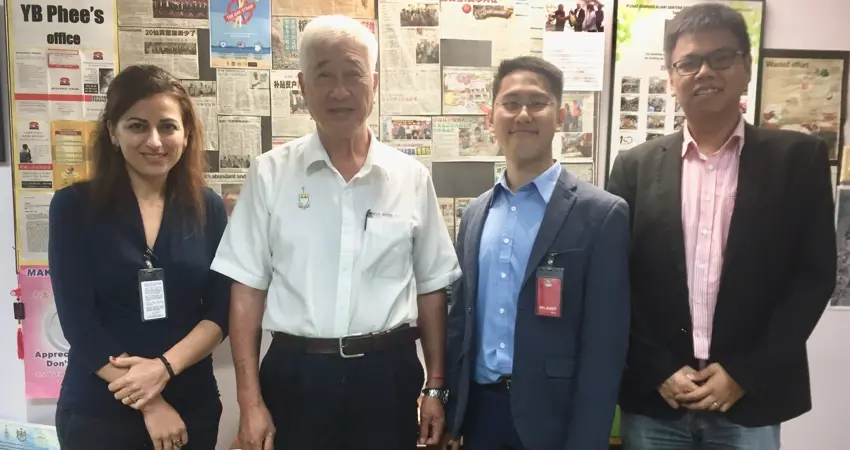
From left to right: Dr Eleni Iacovidou (Brunel University London); YB Phee Boon Poh (Penang Green Council); Dr Kok Siew Ng (University of Oxford); Mr Tze Howe Ooi (HEYA)
A UK researcher from the Department of Engineering Science has been working to strengthen collaborations with Malaysia and promote a circular economy approach to municipal solid waste management.
NERC Industrial Innovation (Rutherford) Research Fellow Dr Kok Siew Ng (Department of Engineering Science) along with Dr Eleni Iacovidou (Brunel University London) recently spent two weeks in Malaysia meeting with key stakeholders from government, academia, industry and NGOs to gain a better understanding of the country’s waste management system and propose recommendations for addressing the multiple issues faced by the waste management sector.
During their trip the researchers met the Head of Department of Chemical Engineering at UPM University and visited the Sustainable Process Engineering Research Centre (SPERC), a newly established research centre at UPM pioneering the application of a systems approach in designing and integrating new industrial and waste valorisation technologies and processes.
“We are pleased to have identified a number of potential synergies among UPM, Oxford and Brunel and we are excited to be able to work more closely with the UK to drive the initiatives in promoting sustainability in resource utilisation.”
SPERC Director Associate Professor Dr Wan Azlina
The researchers also had the opportunity to meet the VC of Penang Green Council, YB Phee Boon Poh (main picture), who has introduced various initiatives including the banning of polystyrene packaging and introducing a partial ban on single-use plastic bags, and has further plans to promote alternative options for municipal solid waste management.
At Malaysia’s National Solid Waste Management Department (JPSPN), the Deputy Director General (Technical) of JPSPN provided the team with invaluable insights into the various issues and challenges relevant to municipal solid waste management in Malaysia, such as the importing of contaminated plastic waste.
During a visit to the Solid Waste and Public Cleansing Management Corporation (SWCorp) the researchers discussed illegal dumping of waste, landfill sites and imports of plastic waste with the Deputy CEO (Technical) and his team. SWCorp plan to promote initiatives aimed at increasing awareness of waste segregation at source, deposit return schemes and incentivising recycling.
The team made the most of their two weeks in the country, meeting with representatives from industry and visiting relevant sites, including:
- Touring the food waste recycling facility at Petaling Jaya, which processes around 500kg of food waste per day by means of anaerobic digestion producing biogas and fertiliser.
- Visiting Penang Hill, one of the most popular tourist attractions in the area, which generates a significant amount of waste. Wastewater recovery facilities are being introduced at the site and there are plans to develop a more sustainable solid waste management system.
- Taking part in a knowledge exchange session at the Higher Education Youth Association (HEYA), a Malaysian NGO providing training to graduates, which focused on exchanging ideas on environmental sustainability and ways of improving the quality of research and teaching in higher education. Dr Ng says, “The discussion was highly interactive and we have managed to generate several key takeaways. We are particularly pleased that after our conversations, HEYA is considering including sustainability in the education policies they are preparing for the Ministry of Higher Education”.
The researchers plan to collaborate further with many of the Malaysian agencies they met during their visit with a view to promoting circular economy and tackling the challenges relevant to solid waste management in Malaysia.
The SYNERGORS Project
The SYNERGORS project (“A systems approach to synergistic utilisation of secondary organic streams”), funded by the Natural Environment Research Council (NERC), is led by Engineering Science’s Dr Kok Siew Ng. The project aims to develop new systems approaches and decision-making tools for promoting resource recovery from secondary organic waste streams including fossil- (e.g. used plastics) and biomass-derived waste (e.g. food waste, residual biomass).
SYNERGORS will provide significant insights into various options for organic waste reduction and utilisation, and propose viable business models to attract stakeholders in the commercial sectors to invest in these areas. Furthermore, the research will address various socio-environmental challenges faced by human and living communities, the rising global demands in energy and commodities, and lessening burdens on the landfill, water and atmosphere. It is envisaged that the outcomes from this project (e.g. decision-making tool and roadmap) can be adopted in the UK and other countries in improving the policies and practices in relation to organic waste management. The objectives of the project are well aligned with the UK Industrial Strategy in enhancing resource efficiency while achieving a sustainable industrial growth and a more resilient economy. The project has received support from a number of UK and international organisations (academia, industry and government), providing multidisciplinary expertise to address the global challenges in waste management.
Acknowledgements
Dr Ng would like to express his gratitude to NERC (now part of UKRI) for their invaluable support for this initiative. The British Council is also acknowledged as initial collaboration between the UK and Malaysia was first established through Newton Fund Researcher Links Workshop. The current fellowship project funded by NERC has enabled further collaboration to be sustained for the next few years.
Dr Ng would also like to thank Professor Ir. Dr. Denny KS Ng (Associate Head of the School of Engineering and Physical Sciences, Heriot-Watt University Malaysia), Associate Professor Ir. Dr. Wan Azlina bt. Wan Abdul Karim Ghani (Director of Sustainable Process Engineering Research Centre - SPERC, UPM) and Mr Tze Howe Ooi (President of Higher Education Youth Association - HEYA) for arranging the meetings and visits in Malaysia.
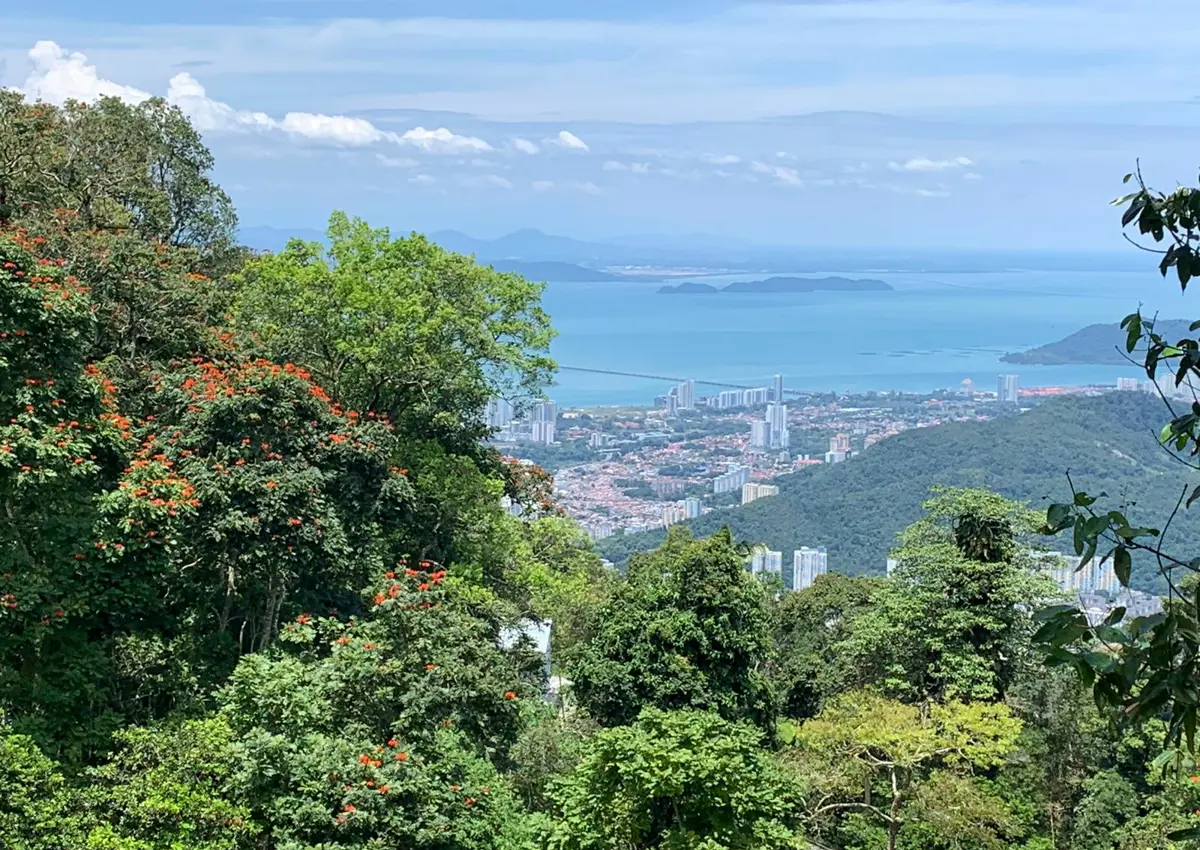
Penang Hill

Penang Hill wastewater treatment facility
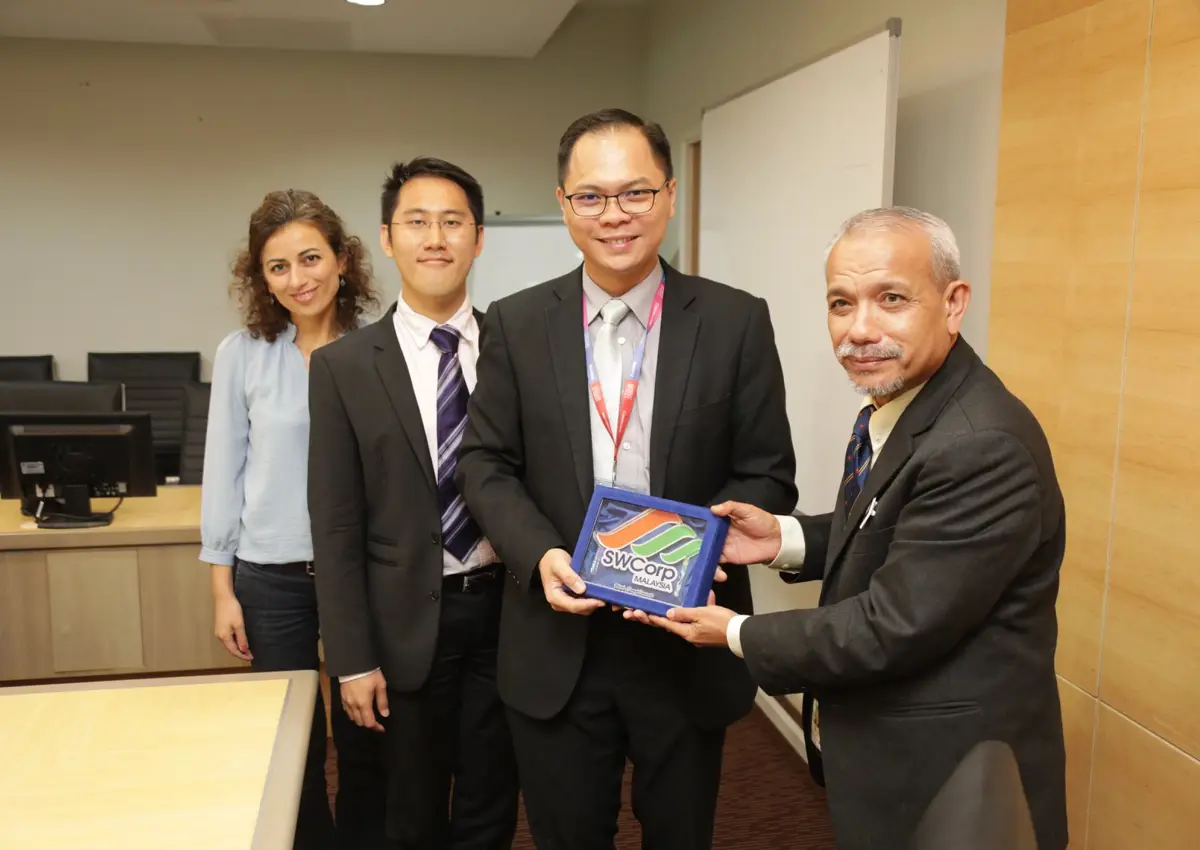
Dr Eleni Iacovidou (Brunel University London); Dr Kok Siew Ng (University of Oxford); Prof Ir Dr Denny KS Ng (Heriot-Watt University Malaysia); Dr Mohd Pauze bin Mohamad Taha (SWCorp)
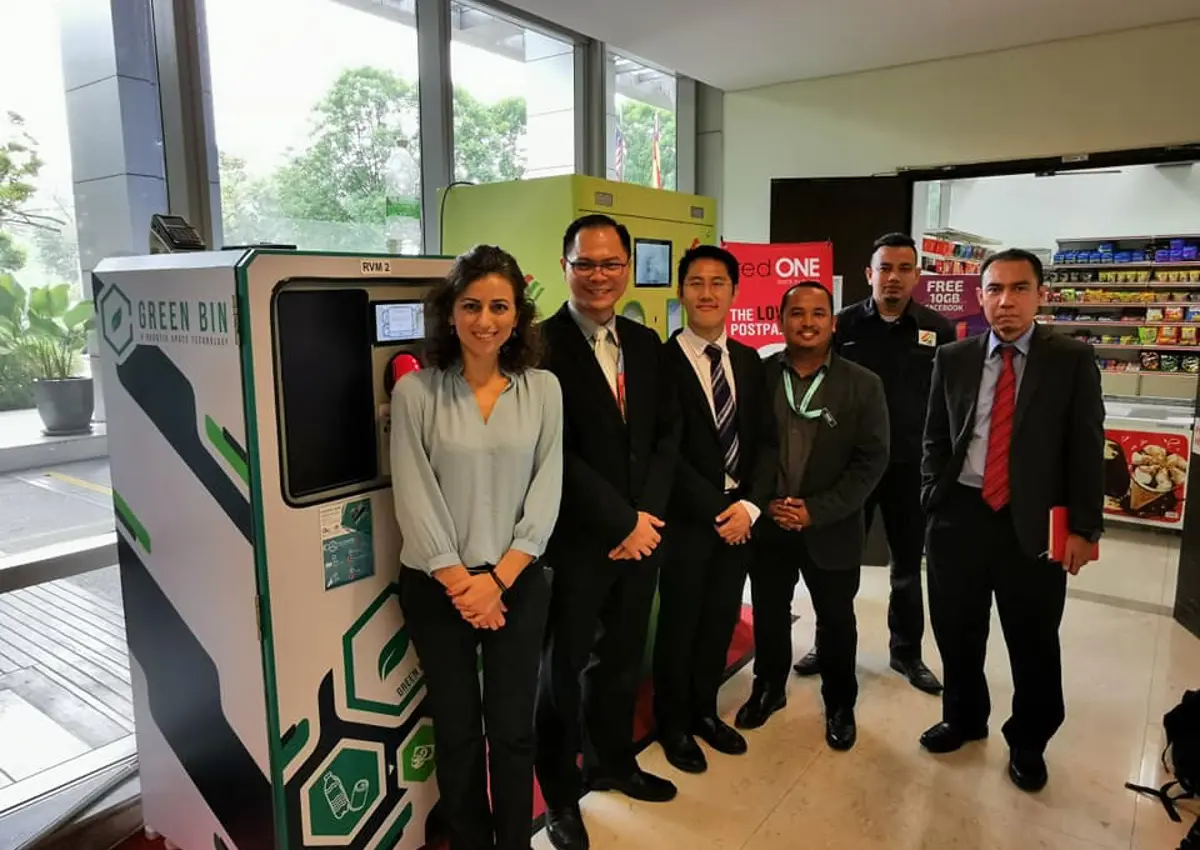
Solid Waste and Public Cleansing Management Corporation (SWCorp)
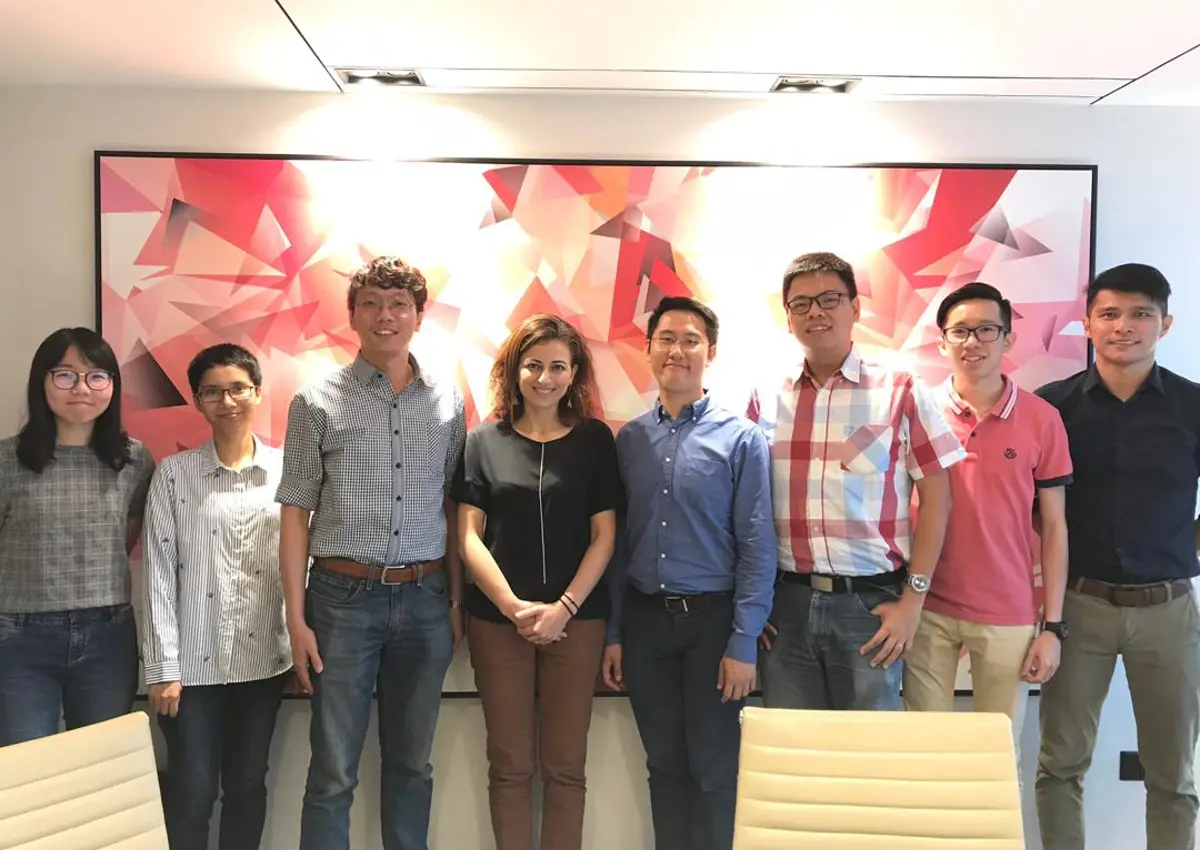
Higher Education Youth Association (HEYA)
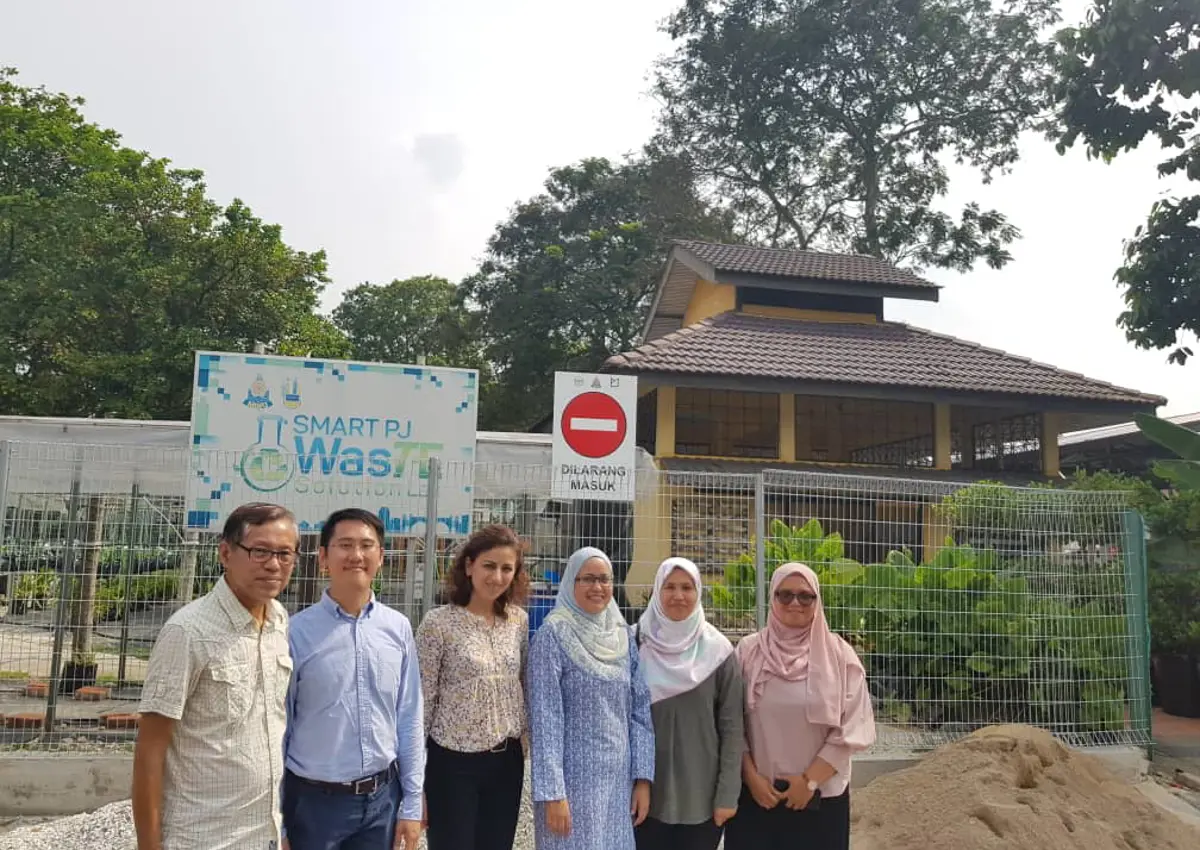
Site visit to the food waste recycling facility at Petaling Jaya




